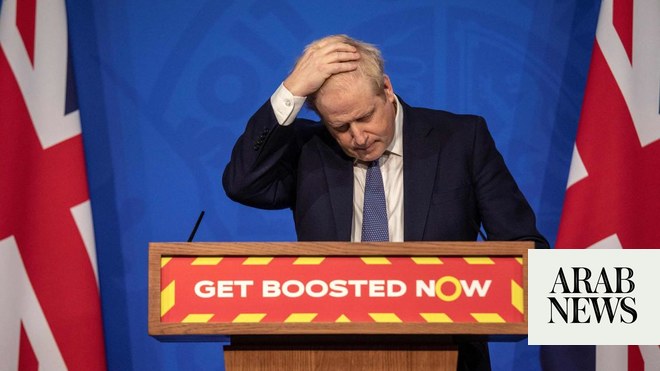
An MP was brought to the brink of tears by bereaved relatives who described their harrowing experiences losing loved ones to Covid-19 and demanded an urgent statutory public inquiry into the government’s handling of the pandemic.
In the second evidence session of the new all-party parliamentary group (APPG) for coronavirus led by a cross-party group of MPs, Downing Street was accused of being “asleep at the wheel” and of mounting a “sluggish” response to the coronavirus.
In testimony on Wednesday, which at times left APPG members visibly emotional, four relatives from Covid-19 Bereaved Families for Justice – a group of 1,450 people who have lost loved ones as a result of the pandemic – described the deaths of their loved ones.
The founder of the campaign, Jo Goodman, showed MPs a picture of her smiling father, Stuart, holding copies of his first published book shortly before he died after contracting Covid. Explaining that while he was 72, suffered from heart issues, mild asthma and was undergoing diagnosis for cancer, she stressed that he “still had a huge amount to live for”.
She added: “My dad did begin isolating a week or so prior to lockdown. However, he had a scheduled appointment to receive his cancer diagnosis on 18 March. So he was in a crowded waiting room full of vulnerable patients, there was no social distancing and staff weren’t provided with any PPE whatsoever. This is five days before lockdown.”
The following week he began his chemotherapy treatment, Goodman explained, but a few days later he started to develop coronavirus symptoms. He died on 2 April in hospital, with his shielding letter arriving nine days after his death. “As a family we felt that too little had been done by the government, and too late, to protect my dad and people like him,” she said, leading her to set up the campaign group.
She added: “I feel that at the start of the pandemic the government was very much caught asleep at the wheel and I’m not entirely sure the government has fully woken up yet.”
Goodman revealed that earlier letters to the prime minister, Boris Johnson, highlighting the inquiry call and requesting a meeting with bereaved relatives in the group had been turned down, saying she felt they had been “swept under the carpet”. She urged Johnson to “speak to us” so that “bereaved families’ voices are heard”.
Covid-19 Bereaved Families for Justice is calling for an urgent, wide-ranging, judge-led public statutory inquiry. Last month, Johnson pledged to hold an independent inquiry but no details of the format, scope or timing of the inquiry have been released.
Eight Tory MPs and peers – including former ministers David Davis and Harriett Baldwin – are among more than 50 politicians who have joined the APPG, which is holding a rapid inquiry over the summer into the government’s response to the Covid-19 pandemic as the official UK death toll tops 46,000. Liberal Democrat MP and chair of the APPG inquiry, Layla Moran, said: “It is unacceptable that bereaved families have been met with such a wall of indifference from No 10. The prime minister must agree to listen to families who have lost loved ones to coronavirus and take their concerns on board.”
During the evidence session on Wednesday, Labour MP Sharon Hodgson was seen wiping her eyes during testimony.
Hannah Brady, 24, whose 55-year-old father, Shaun, who had no underlying health conditions, died from Covid in May after spending 42 nights in ICU on a ventilator, also told the APPG: “Dad had a lot of reasons to live; his daughters, his family, his community, his charity work. But he only needed one reason to die: the government’s sluggish response to the threat of Covid-19 to our country.”
Fighting back tears, psychotherapist Kathryn de Prudhoe held up a picture of her 60-year-old father, Tony Clay, explaining that he died in hospital from Covid 23 days after the picture was taken. “He was fit and healthy and had no underlying health conditions that we knew of,” she said, explaining that he had flown to the UK from his rural home in France on 13 March , hoping it was safer than being in mainland Europe.
“My dad was on a low dose of blood pressure medication and he had a family history of heart disease and it appears now that they were risk factors he was unaware of. I believe that with clearer messaging, more honest communication about who was at risk, and earlier lockdown, travel restrictions, border controls, test, track and trace, and a health service that was equipped to attend to people other than the most critically ill, my dad would still be alive.”
Meanwhile, during the evidence session people who have endured long-term forms of Covid-19 also spoke about the debilitating impact of the disease. Claire Hastie, founder of the Long Covid Support Group which has more than 15,000 followers on Facebook, said she had been left wheelchair-bound due to the virus. The 48-year-old single mother-of-three, whose children have all caught the virus, told the APPG: “I used to cycle 13 miles a day on my commute and now I can’t even walk 13 metres.”
A government spokesperson said: “This has been an unprecedented global outbreak and every death from the virus is a tragedy. The government has acted to protect lives, incomes and the most vulnerable in our society. In the future there will be an opportunity for us to look back and learn some profound lessons. But at the moment, the most important thing to do is to focus on responding to the current situation.”












